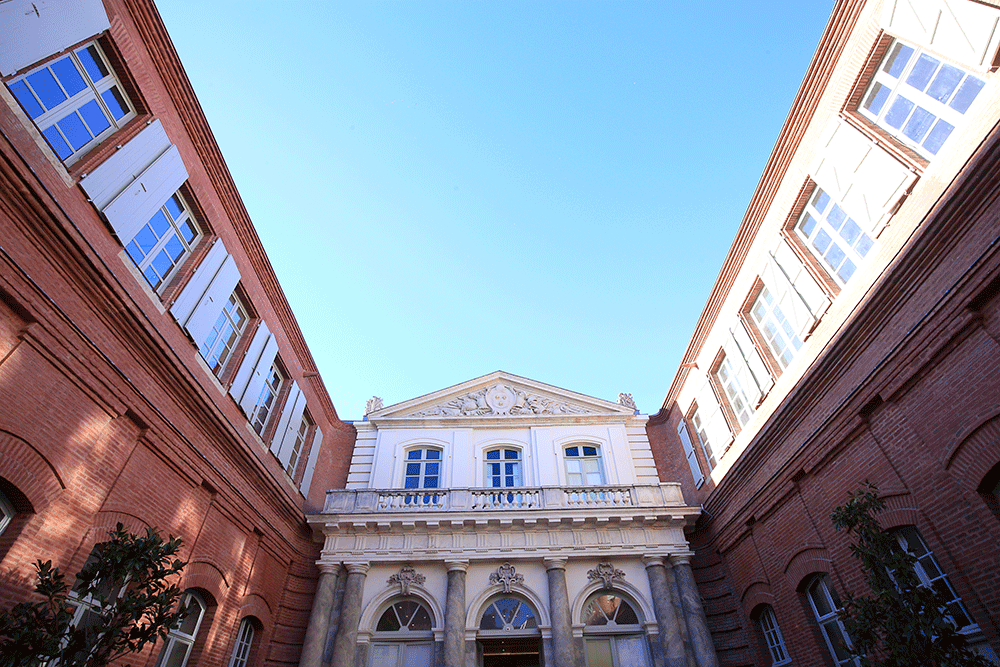Discover the UPVD
A+
A-
Aa
A local, multidisciplinary and innovative university
In 1350, the King of Aragon founded the University of Perpignan. Characterized by a multidisciplinary approach since its inception, this approach continues to define the University today, some 670 years later.
The University of Perpignan Via Domitia (UPVD) is modestly sized, local and multidisciplinary, and is open to Occitania, Southern Catalonia and to the International world. It is located in an ideal setting, at the centre of three metropolises: Montpellier, Toulouse and Barcelona.
The UPVD has converged its strengths and skills to create a collective dynamic adapted to the challenges of global change. As these changes bring about problems that can only be dealt with in a multidisciplinary manner, the UPVD benefits from undeniable assets and a particularly favourable regional, national and international context.
Mobilized around Man in his environment
The academics and research at the University of Perpignan focus on Man within his environment, over a long time period (for 560,000 years, Tautavel) in order to adapt to new constraints, to support expected transitions and to propose future solutions. This work addresses the adaptation of plants to climate change as well as the effects induced in parasitology, the need to develop techniques for restoring fish stocks or the treatment of plastics at sea. Further, we are invested in the invention of the energies of tomorrow, the creation of future regulations to encourage greater sustainability and in the conceptualisation of an evolved concept of Man within his environment.
In 1350, the King of Aragon founded the University of Perpignan. Characterized by a multidisciplinary approach since its inception, this approach continues to define the University today, some 670 years later.
The University of Perpignan Via Domitia (UPVD) is modestly sized, local and multidisciplinary, and is open to Occitania, Southern Catalonia and to the International world. It is located in an ideal setting, at the centre of three metropolises: Montpellier, Toulouse and Barcelona.
The UPVD has converged its strengths and skills to create a collective dynamic adapted to the challenges of global change. As these changes bring about problems that can only be dealt with in a multidisciplinary manner, the UPVD benefits from undeniable assets and a particularly favourable regional, national and international context.
Mobilized around Man in his environment
The academics and research at the University of Perpignan focus on Man within his environment, over a long time period (for 560,000 years, Tautavel) in order to adapt to new constraints, to support expected transitions and to propose future solutions. This work addresses the adaptation of plants to climate change as well as the effects induced in parasitology, the need to develop techniques for restoring fish stocks or the treatment of plastics at sea. Further, we are invested in the invention of the energies of tomorrow, the creation of future regulations to encourage greater sustainability and in the conceptualisation of an evolved concept of Man within his environment.
670 years of history

In 1350 the King of Aragon, Peter the Ceremonious, founded the University of Perpignan. From the start, the university delivered a complete academic curriculum including coursework in theology, arts, canon law and civil law. In 1745, the Count of Mailly stood before a notary as guarantor for a sum of 50,000 pounds, intended for the construction of a new building for the university. This investement enabled the construction of a garden as well as new laboratories for research in physics, anatomy and natural history. The first stone was laid in 1760 and the building was inaugurated in 1763. Law, medicine, philosophy and theology were taught there until 1793, when the Convention decided to abolish the universities. It was not until 1957 that higher education once again found its place in Perpignan.
5 major domains:
Science, Technology, Health
Law, Economics, Management
Human and Social Sciences
Arts, Letters, Languages
Science and technology of physical and sports activities
Science, Technology, Health
Law, Economics, Management
Human and Social Sciences
Arts, Letters, Languages
Science and technology of physical and sports activities
Specific areas of research and training
Science, technology, health
- Renewable energies
- Life sciences, genomics, tropical and Mediterranean ecology
- Geoscience and marine environment studies
- Economic law: contracts, competition and consumption
- Comparative law
- Urban planning and property law and management disciplines
- Tourism
- Heritage studies
- Town planning and sustainable developmentPrehistory and paleo-environment
- Préhistoire et Paléo-environnement
- Health and social
- Classical and contemporary humanities literature
- Master Mundus
- Catalan studies
- Sport careers
Date of update June 16, 2020









